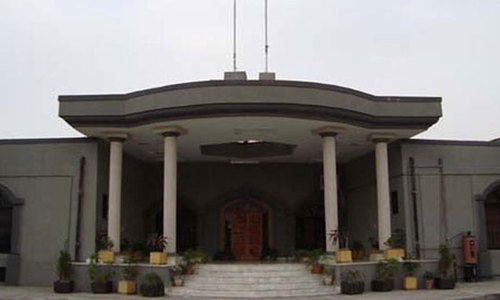ISLAMABAD: The fate of 15 bail petitions pending in the Islamabad High Court (IHC) in different cases related to the National Accountability Bureau (NAB) hang in the balance as the recent presidential ordinance amended the NAB law empowering trial courts to grant bail in such references.
National Accountability Ordinance (NAO) 1999 did not provide granting bail to the accused as an under-custody suspect could only apply for the bail after the expiry of 90 days remand that too under the extraordinary jurisdiction of the constitutional high courts under Article 199 of the constitution that empowered them to enforce fundamental rights.
The ordinance promulgated by President Dr Arif Alvi stated: “No court other than the court under the Ordinance [accountability court] shall have the power or the jurisdiction to grant bail to or otherwise release an accused person in a case triable by an accountability court.”
The ordinance, however, provided that “where the charge specifies any amount in respect of which the offence is alleged to have been committed, the surety amount shall not be less than the said amount.”
The IHC hearing a bail petition of former president Asif Ali Zardari in the New York properties case has sought assistance from senior lawyer Farooq H. Naek and NAB’s prosecution on the fate of the bail petitions pending in the IHC in context of the new law.
Legal experts said empowering accountability courts to grant bail to an accused is a good step but the ordinance made it mandatory for an accused to deposit the same amount as estimated by the investigation officer in the reference as the approximate loss occurred to the national exchequer.
According to advocate Naek, it has become very difficult for the accused to submit surety bonds of such an huge amount because in majority of the references the investigation officer alleged multi-billion rupees loss for someone’s inefficiency and connivance.
“How one could arrange multi-billion rupees to get bail from a trial court,” he said.
He termed it a lacuna in the presidential ordinance but expressed the hope that the superior judiciary would issue a direction to put the matter right.
Published in Dawn, October 10th, 2021















































